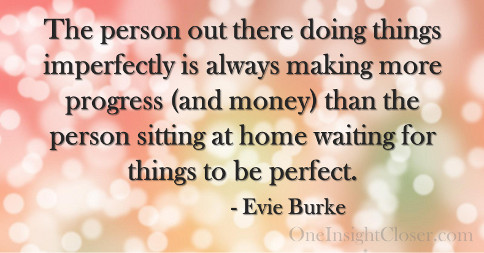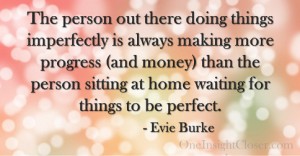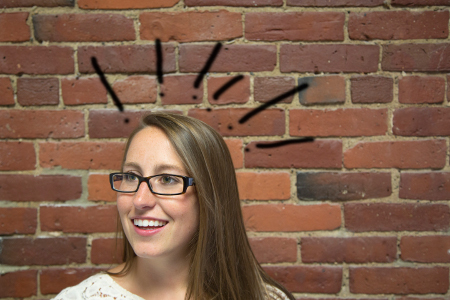This is the second installment of the 8 easy-to-make networking mistakes that can be avoided series.
I’m going over two mistakes this week:
- I wasn’t comfortable talking about myself, and I wasn’t prepared to share with others what I do.
- I was only clear on what I used to do in my former job.
One part of this is I wanted to make sure I was including as many people as I could in my description of my ideal client.
This is a common problem. One of the best examples of this is someone who sells makeup saying that their ideal client is someone with skin.
So, my husband is your ideal client? And so is my 20 year old nephew? And my mom, oh AND my 8 year old cousin?
Well, that’s confusing. And if I approached any of them saying, “hey I just met someone that works with people just like you, people with skin!” They probably wouldn’t be interested.
Be specific about who you help.
Instead of saying that your ideal client is someone with skin, you might say, “I work with women who want to look 10 years younger” or “I help prevent and reduce the appearance of fine lines and wrinkles.”
It’s much more specific and now I know that my husband is NOT your ideal client (he really doesn’t care about either of those things).
Be clear and consistent.
Remember how I wrote that I got a referral for my old company? My old job was the only thing I was really comfortable talking about, when I talked about them I was clear and consistent, even when the wording changed. After all, I had worked there for almost 10 years!
I knew exactly what they did and how they helped people. I spoke with a confidence and authority I didn’t have when I talked about my own business.
Yes, some of that confidence comes with time, but you can help it along with some preparation.
How do you become clear and consistent?
Make a list of the results your clients get, both the tangible results (more clients, clearer skin, etc) and the intangible (confidence).
And practice how you talk about what you do. Work with your business coach on this. They’ll have a different perspective than friends and family (who mean well, but might not understand networking as an entrepreneur).
What has most helped you or would most help you be clear and consistent? Share in the comments below.




